With the synchronous participation of the government, businesses and people, many agricultural production models meeting international standards have been formed and have shown clear effectiveness, not only with key industrial crops such as coffee and passion fruit but also expanding to vegetables and short-term crops.
Change from thinking, coffee growing methods
Gia Lai currently has more than 100,000 hectares of coffee, of which the western part of the province is the largest concentrated growing area. According to the direction of the Department of Agriculture and Environment, by 2030, about 80% of the coffee area in this area will be certified with international standards such as: 4C, VietGAP, GlobalGAP or organic. This is an important step to bring Gia Lai coffee further on the export map, especially to demanding markets such as the EU.
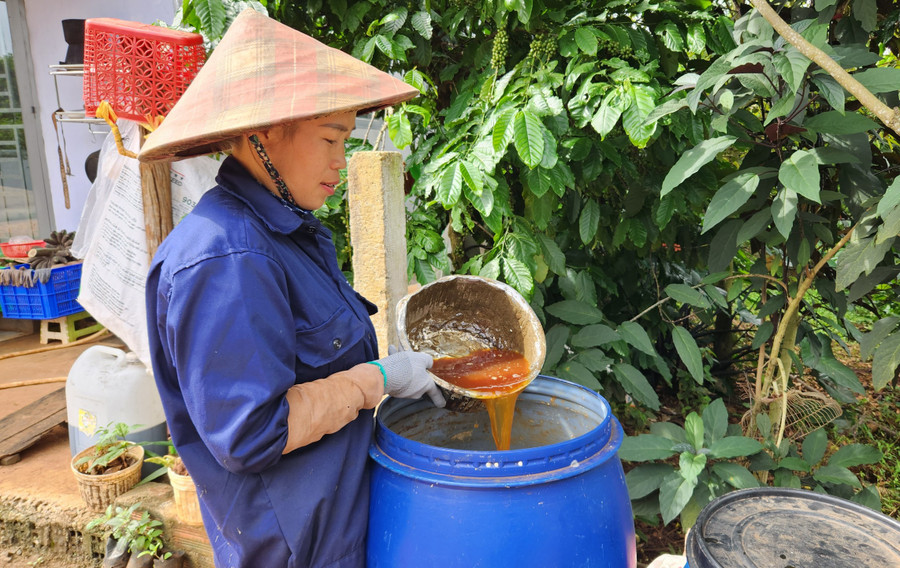
Photo: Ngoc Sang
To realize this goal, many farmers have proactively changed their farming methods. In village 4 (Ia Ko commune), Ms. Nguyen Thi Thao's family cultivates 2 hectares of coffee in a sustainable organic direction. From soil improvement, seed selection to care and harvesting, all processes are strictly followed: watering sparingly, using organic microbial fertilizers, and harvesting coffee when it is 80-90% ripe to ensure bean quality.
“Harvesting in multiple batches is laborious, but the fruit ripens evenly, produces beautiful beans, the branches are not damaged, and the next crop yield is also better. Last year, my family harvested 6 tons of coffee beans,” Thao shared.
In Dak Doa commune, the coffee growing model following the Japanese EMI process implemented by Lam Anh Agricultural and Service Cooperative is creating clear changes in the production practices of the Bahnar people.
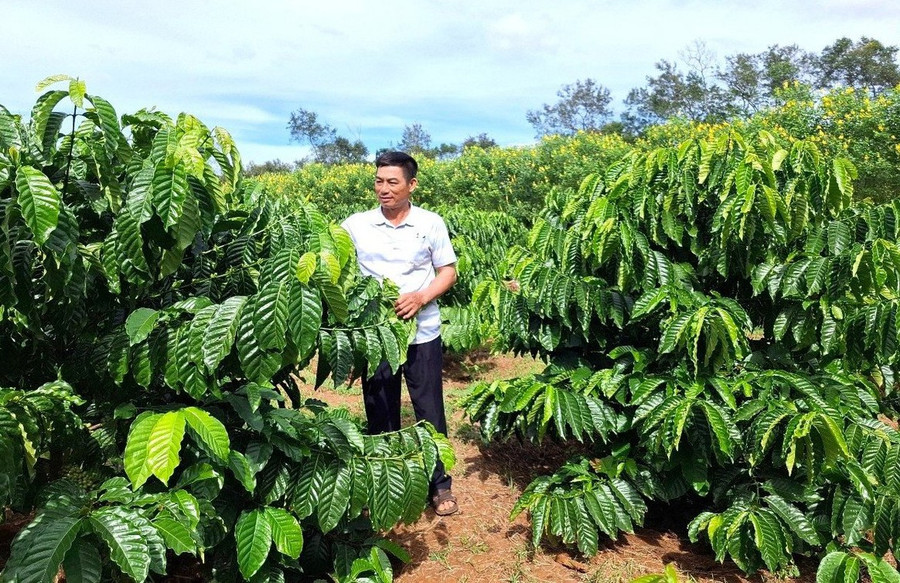
Previously, Mr. Xuan (Groi Wet village) used herbicides and chemical fertilizers, which resulted in poor soil and low productivity. Since joining the cooperative and switching to organic farming, he has reduced his investment costs by 30%, increasing productivity from 3 tons to 5 tons/1.5 hectares.
“The cooperative gave me detailed instructions on how to keep the grass moist, use composted coffee husks as organic fertilizer, and prune the trees properly. Now the trees are green and healthy, with fewer pests and diseases, and I am healthier because I don’t have to use chemicals,” said Mr. Xuan.
Changes in farmers' awareness and actions are contributing to the wave of sustainable organic farming, helping Gia Lai coffee gradually conquer demanding markets.
Organic Passion Fruit: Changing the Face of Remote Communes
In 2024, from the support program of the National Agricultural Extension Center, Nghia Hoa Agricultural Service Cooperative (Chu Pah commune) deployed the VietGAP passion fruit model with 14 members, a total area of over 10 hectares. People were trained in techniques, instructed to keep a farming diary, use organic fertilizers and comply with the quarantine period for pesticides.
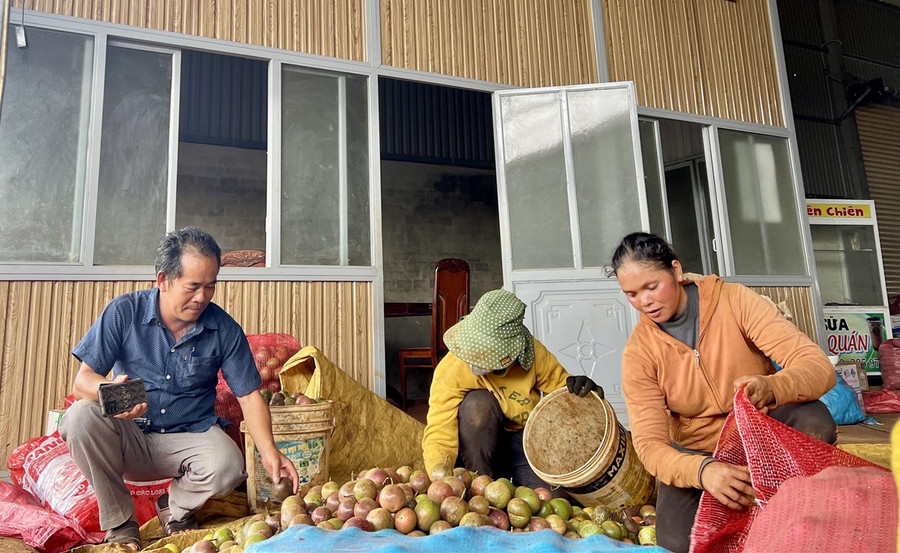
Photo: Ngoc Sang
Mr. Phan The Linh (village 2, Chu Pah commune) shared: “I grow 1.3 hectares of VietGAP passion fruit, saving on fertilizer and labor costs. This year, the price is high, at one point the export price of passion fruit reached 55,000 VND/kg. After 3 harvests, after deducting costs, I still have a profit of about 300 million VND.”
According to Mr. Nguyen The Minh - Director of Nghia Hoa Agricultural Service Cooperative, the VietGAP model helps to strictly manage the farming process, reduce chemical fertilizers, increase organic fertilizers, thereby improving productivity and economic efficiency. Some households have maintained organic farming, ready to expand in the coming dry season.
Further southwest, Ia Lau commune used to be a poor area, where people lived on cassava, cashew, and single-crop rice. But in recent years, organic passion fruit has opened up a new direction.
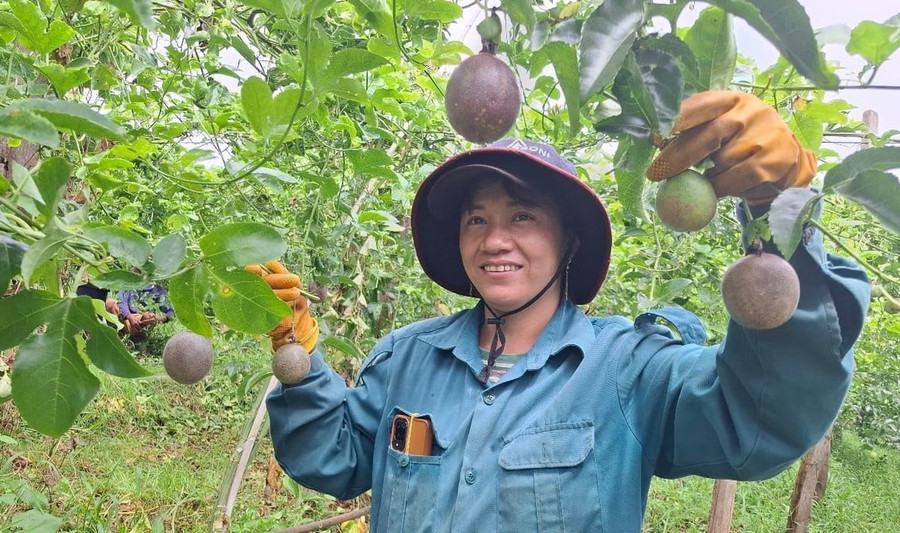
Mr. Trinh Phuc's family (Me village) is one of the pioneers in converting 2 hectares of rice to organic passion fruit. With support from Thong Do International Joint Stock Company for seeds and techniques, he takes care of the plants according to the correct process: clean soil, biological fertilizer, no chemical pesticides.
“Growing organically is harder, but the plants are healthy, the fruit is beautiful, and the price is high. I make a profit of more than 400 million VND a year. The important thing is that I no longer have to worry about health effects like before,” Mr. Phuc shared.
According to Mr. Bui Van Tien - Vice Chairman of Ia Lau Commune People's Committee, the commune currently has about 45 hectares of passion fruit, mainly in areas with good irrigation systems. The government is orienting controlled development, prioritizing areas with guaranteed water sources, adhering to organic processes to stabilize output and protect the environment.
Green vegetables and fruits: New direction from small model
In addition to industrial crops, organic vegetables and fruits models, VietGAP are gradually taking shape in western communes such as Chu Se, Chu Prong, Dak Po. Although the scale is still small, these models have shown clear effectiveness, helping to diversify agricultural products and improve people's income.
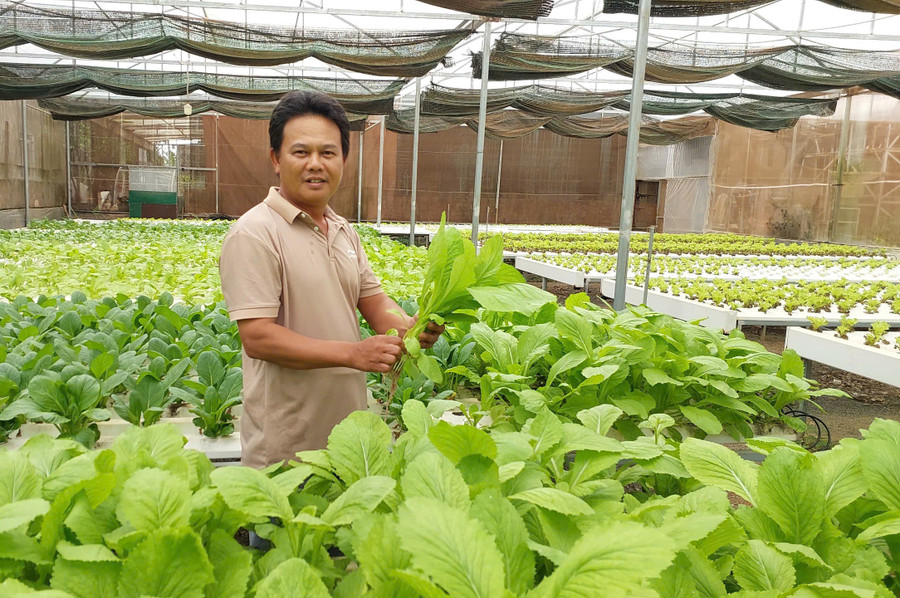
In Chu Pah commune, Mr. Nguyen Duc Them has maintained the model of growing organic vegetables in greenhouses for over 7 years. With an area of 700 m², he invested about 1 billion VND to build a drip irrigation system, racks, and grow lettuce, cucumbers, and vegetables using hydroponics.
“My vegetables are supplied to supermarkets and restaurants around the area. Lettuce always sells for 40-50 thousand VND/kg. Each month, I harvest about 1 ton, after deducting expenses, I still have a profit of 20 million VND. As for cherry cucumbers, I grow them on 250 square meters, harvest 5 batches each year, each batch yields 1 ton, sell for 30 thousand VND/kg, and make a profit of about 100 million VND/year,” said Mr. Them.
The greenhouse model helps to proactively manage crops and limit pests and diseases, especially during the rainy season. However, high humidity still affects productivity, so he will consider improving technology and replicating the model in the future.
According to the latest statistics, the Tay Gia Lai region currently has more than 59,600 hectares of crops that meet advanced production standards, of which about 1,200 hectares are organic vegetables, VietGAP, concentrated in areas with favorable soil and water conditions.
The provincial Department of Agriculture is continuing to support the replication of organic vegetable models in the direction of "large and small compact fields", associated with traceability, growing area codes and trade promotion to increase the value of domestic and export agricultural products.
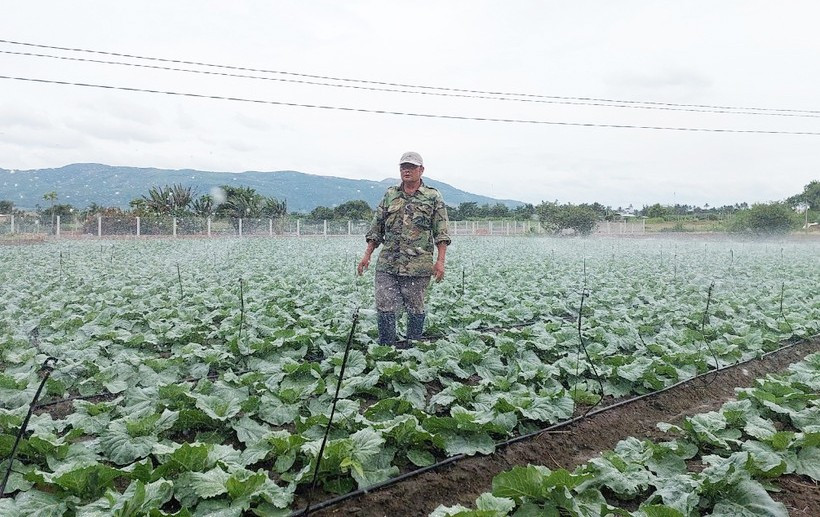
Converting to organic agriculture not only increases people's income but also creates a foundation for sustainable development for Gia Lai province's agriculture sector. From practical models such as EMI coffee, organic passion fruit or hydroponic vegetables, it can be affirmed that: when there is accompaniment between the government, businesses and farmers, organic agriculture can be completely replicated on a large scale.
Not only is it a solution to climate change and market demands, organic production also contributes to improving public health, protecting the ecological environment and enhancing local agricultural products.
A real “green belt” is forming in the Tay Gia Lai area, gradually creating a “green-clean-responsible” agricultural brand for the province in the new era.
Source: https://baogialai.com.vn/tay-gia-lai-khoi-sac-voi-nong-nghiep-huu-co-tu-ca-phe-chanh-day-den-rau-sach-post561549.html


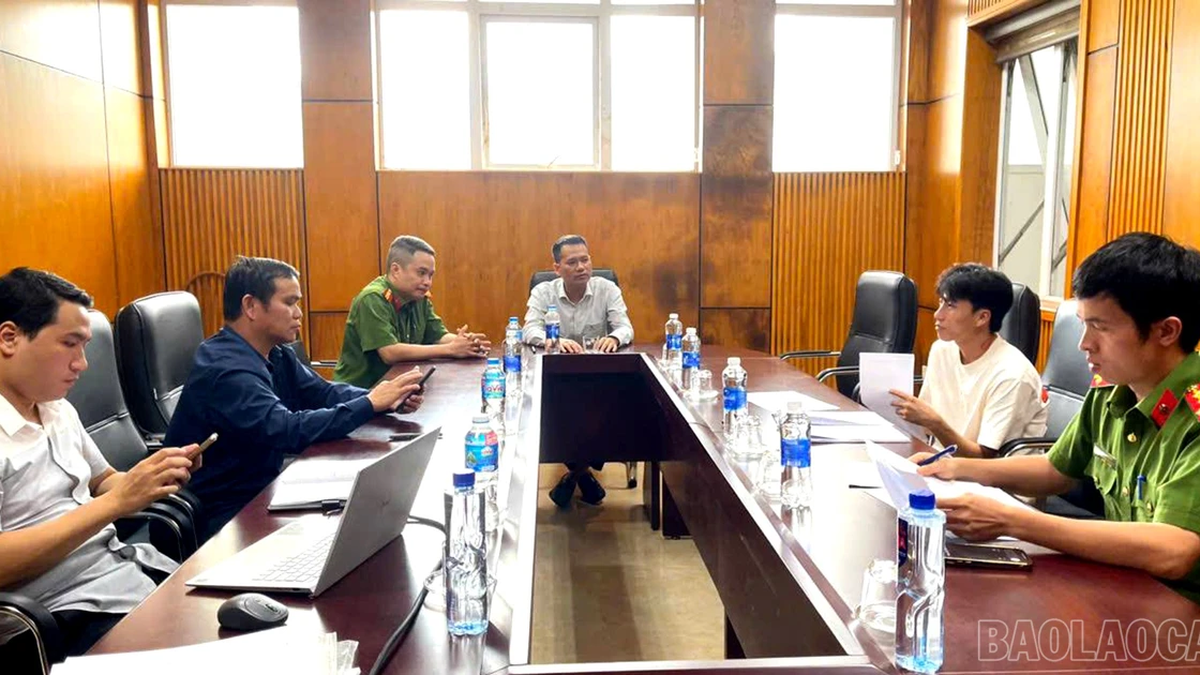



![[INFOGRAPHIC] Quantum Flip Agate: The first folding phone with feng shui stone](https://vphoto.vietnam.vn/thumb/1200x675/vietnam/resource/IMAGE/2025/7/28/810874d2267a418ab15b55c7a5e74f6b)
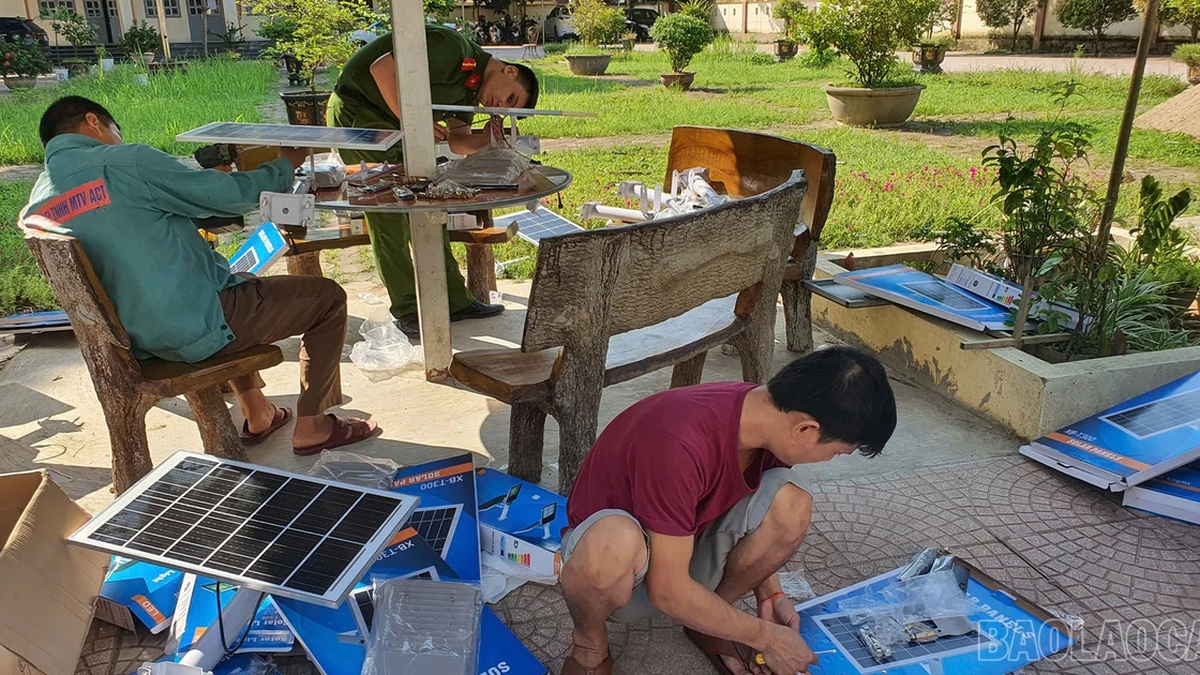


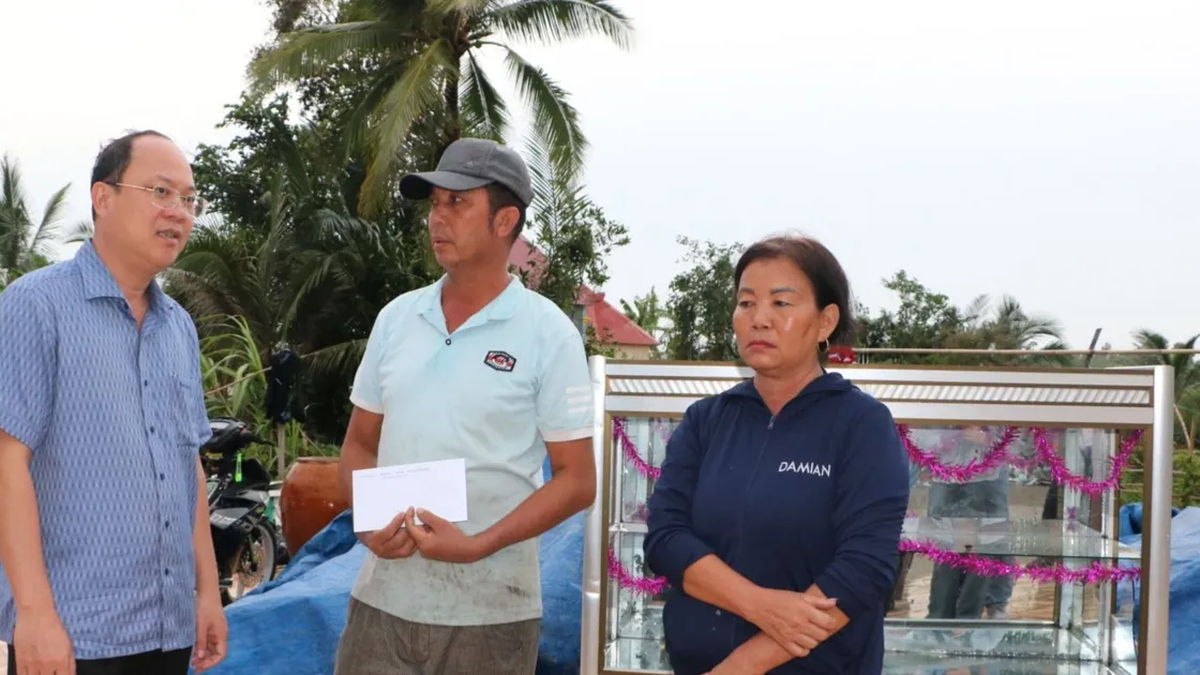
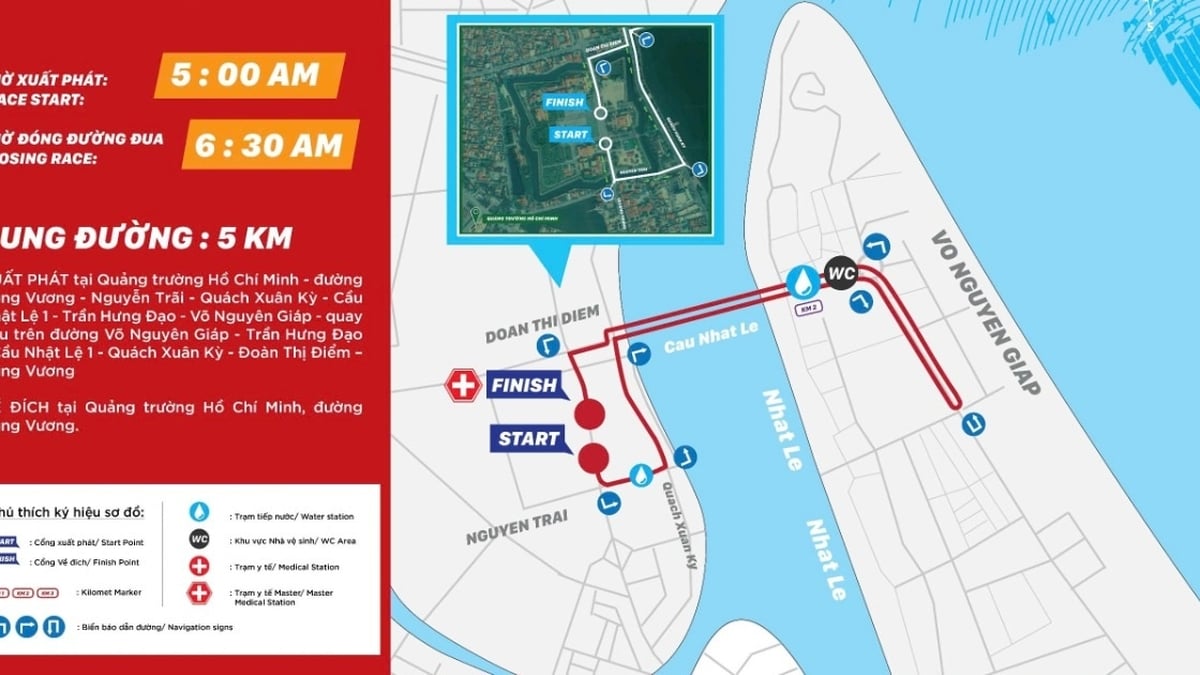












![[Photo] National Assembly Chairman attends the seminar "Building and operating an international financial center and recommendations for Vietnam"](https://vphoto.vietnam.vn/thumb/1200x675/vietnam/resource/IMAGE/2025/7/28/76393436936e457db31ec84433289f72)












































































Comment (0)